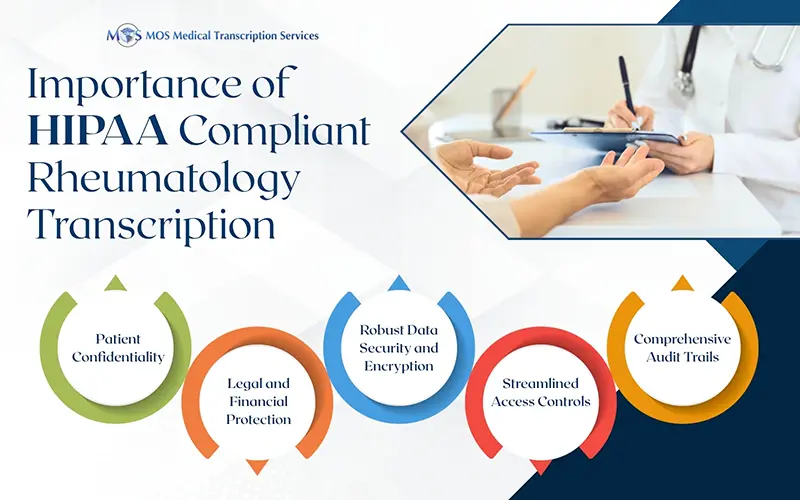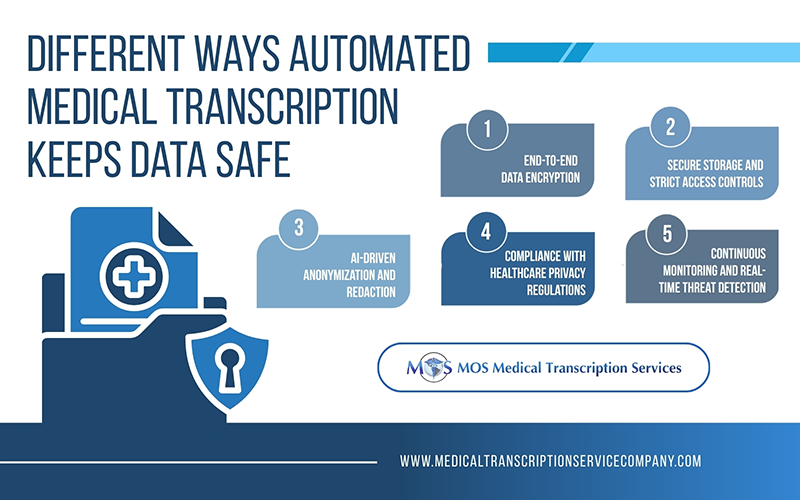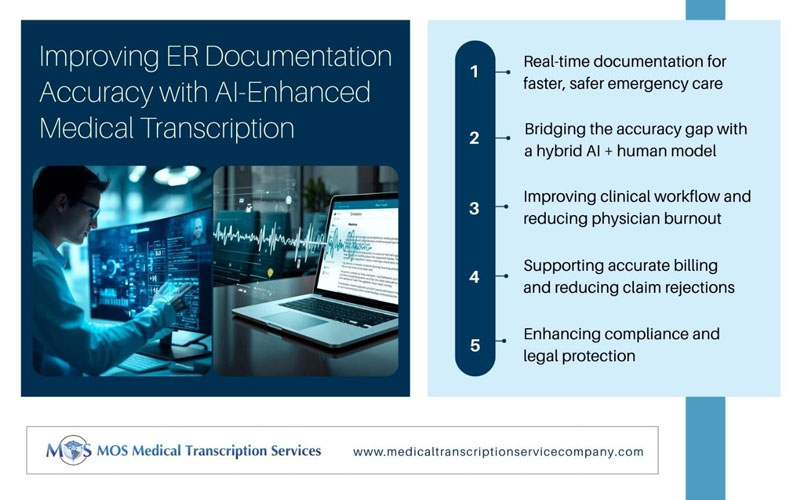Table of Contents
Ever wondered how rheumatologists manage to keep track of every symptom, diagnosis, and treatment plan with such precision? In a field where even the smallest detail can impact a patient’s quality of life, accuracy matters a lot. Medical transcription services prove invaluable here, helping rheumatologists convert dictated notes and patient interactions into structured, compliant medical records. Beyond efficiency, medical transcription for rheumatology plays a critical role in reducing risks and enhancing compliance, particularly with HIPAA regulations.
What is Medical Transcription for Rheumatology?
Rheumatology deals with diagnosing and managing musculoskeletal and autoimmune disorders such as rheumatoid arthritis, lupus, gout, and osteoarthritis. Medical transcription for rheumatology is the process of converting rheumatologists’ dictated clinical notes and reports into accurate, written medical records. To ensure clarity and precision, professional transcriptionists are trained in specialized terminology related to:
- Rheumatoid arthritis
- Psoriatic arthritis
- Gout
- Ankylosing spondylitis
- Systemic lupus erythematosus
- Bursitis
- Tendonitis
- Osteoarthritis
- Nerve entrapment conditions
With their specialized understanding, transcriptionists help rheumatologists to maintain consistent, accurate, and detailed patient records, improving both clinical decisions and compliance standards. Medical transcription providers also invest heavily in advanced technology infrastructure to guarantee accuracy, confidentiality, and efficiency. Automated tools, secure medical transcription process, cloud-based platforms, and AI-driven documentation models now streamline documentation without compromising data security.
Understanding HIPAA Compliance in Medical Transcription
The Health Insurance Portability and Accountability Act (HIPAA) establishes a framework of rules designed to protect patients’ Protected Health Information (PHI). This includes any data that can identify an individual, such as medical histories, lab results, diagnoses, and demographic details.
For rheumatology practices, HIPAA compliance is not just a legal requirement, it’s a commitment to ensure patient data confidentiality and build trust. HIPAA compliance in medical transcription reinforces data security protocols at every stage, from dictation to transcription and final storage. By following HIPAA guidelines, providers can ensure that sensitive data remains private and protected from unauthorized access or breaches.
Why HIPAA Compliance Is Essential in Rheumatology Transcription
Medical transcription involves handling highly sensitive information. Therefore, compliance with HIPAA standards ensures that patient data remains confidential and secure throughout the transcription process. Here’s why it’s vital:
- Patient Confidentiality
HIPAA-compliant transcription ensures the protection of patients’ personal and medical information.
- Strict data-handling procedures and encrypted systems prevent unauthorized access.
- Automated transcription solutions are developed to meet HIPAA requirements, enabling secure transfer and storage of patient data.
By prioritizing privacy, healthcare providers strengthen their reputation and build patient confidence, knowing their information is handled responsibly.
- Legal and Financial Protection
Ignoring HIPAA regulations can have serious repercussions, including:
- Heavy financial penalties
- Legal liabilities
- Reputational damage
By using HIPAA-compliant transcription services, rheumatology practices safeguard themselves from these potential risks. Compliance helps practices avoid costly violations while maintaining ethical and professional standards.
- Robust Data Security and Encryption
One of the pillars of HIPAA compliance is data protection. Advanced transcription systems integrate:- End-to-end encryption for secure transmission and storage
- Multi-layered firewalls to block unauthorized access
- Regular security audits to detect vulnerabilities
These measures ensure that only authorized individuals can access sensitive patient information, minimizing the possibility of data leaks or breaches.
- Streamlined Access Controls
HIPAA requires healthcare systems to control who can view or edit patient data. Advanced transcription platforms allow role-based access, ensuring that only authorized team members can retrieve or modify specific information.
- Physicians and authorized staff can access files securely.
- Unauthorized users are blocked, reducing exposure risks.
This controlled access enhances operational efficiency while maintaining data confidentiality.
- Comprehensive Audit Trails
HIPAA mandates audit logs for all systems managing PHI. Modern transcription platforms automatically record every data interaction, including:
- Who accessed patient information
- When the data was viewed or edited
- What changes were made
These audit trails create accountability and transparency. In the event of a security concern, logs can quickly identify irregularities, helping practices take corrective action immediately.
Benefits of Professional Medical Transcription Solutions for Rheumatologists
Rheumatology practices handle extensive medical histories and long-term treatment plans. Manual transcription carries the risk of mistakes that could lead to compliance breaches or incorrect documentation. Partnering with an experienced, technology-driven medical transcription company minimizes error in clinical documentation. Automated, AI-enhanced transcription tools minimize human intervention while maintaining superior accuracy. Built-in quality control mechanisms detect and correct inconsistencies. Automation also ensures faster turnaround times without compromising data integrity. The result is precise, error-free medical documentation that supports clinical accuracy and compliance.
Other benefits of technology-enabled rheumatology transcription include:
- Improved Workflow Efficiency: Automated systems streamline documentation, freeing physicians to focus on patient care.
- Reduced Administrative Burden: Outsourcing transcription minimizes clerical workload and improves staff productivity.
- Increased Data Security: Encryption, access controls, and audit systems keep patient information safe at every stage.
- Regulatory Compliance: Strict adherence to HIPAA protects the practice from legal risks and fines.
Specialty-specific medical transcription services are fine tuned to meet the requirements of each practice, enhancing operational performance while reducing and improving overall patient outcomes.
Building Trust Through Compliance and Accuracy
For rheumatologists, trust is built on two pillars: accurate medical documentation and confidential handling of patient information. Medical transcription solutions designed for rheumatology not only provide efficiency but also uphold the highest standards of security and compliance.
For rheumatology practices, partnering with a HIPAA-compliant medical transcription service ensures that patient data is protected, records remain accurate, and operations run smoothly. By combining advanced technology, strict compliance protocols, specialized knowledge in specialty-specific terminology, such companies can ensure transcription accuracy in rheumatology, reducing risks, enhancing patient trust and overall care quality.




